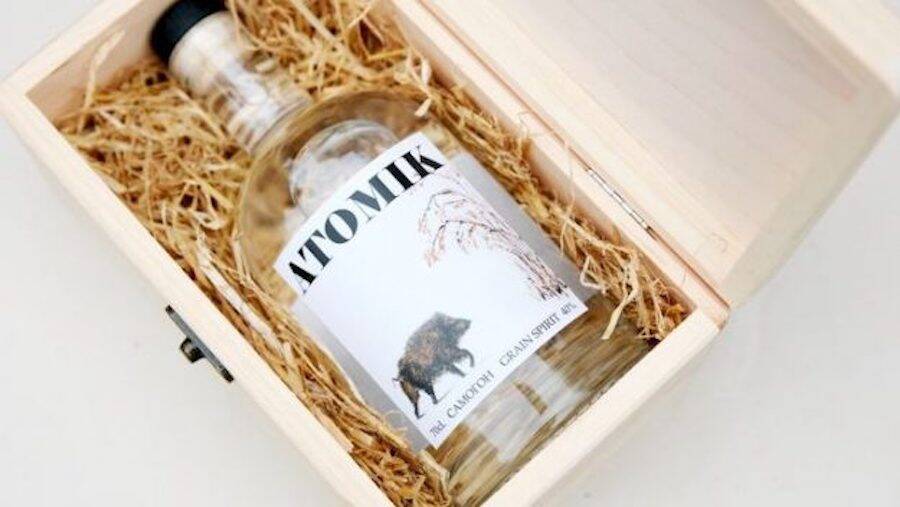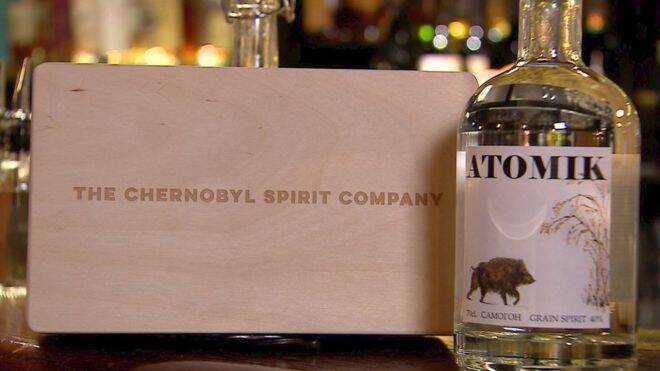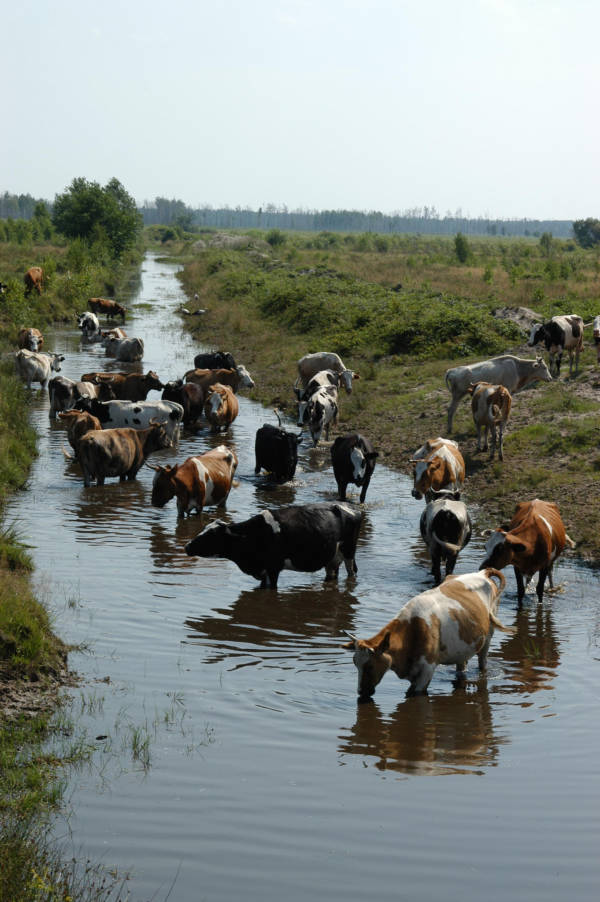The Chernobyl Spirit Company has three goals: utilize the exclusion zone, stimulate local economies, and make safe, delicious vodka.

University of PortsmouthThis is currently the only product made and sold by the Chernobyl Spirit Company — and within the Chernobyl Exclusion Zone.
April marked the 33rd anniversary of the Chernobyl nuclear disaster. After the 1986 explosion, which released untold amounts of radioactive material across the continent, a 1,000-square-mile exclusion zone around the Chernobyl plant was established to mark the region deemed too radioactive for habitation.
Consequently, thousands were evacuated and what was once a functional satellite city became a ghost town. According to the BBC, however, this town might be back in business with the advent of an artisan vodka made right where the disaster occurred.
The ominously named “Atomik Vodka” is made with grain and water grown in the very zone once evacuated for its radiation levels, and has become the first consumer product to hail from the abandoned region since the disaster.
The vodka is a product of the Chernobyl Spirit Company, which is a part of a long-standing project led by professor Jim Smith of the UK’s University of Portsmouth. His project has, since the ’90s, looked into the transfer of radioactivity to crops grown in the Chernobyl exclusion zone.
The business has so far developed one finished bottle which is by all accounts, safe to drink.
“It’s the only bottle in existence,” said Smith. “I tremble when I pick it up.”
As far as experts at Southampton University can tell, the final product is absolutely safe. “Everything was below their limit of detection,” Smith assured.
“This is no more radioactive than any other vodka,” said Smith continued. “Any chemist will tell you, when you distill something, impurities stay in the waste product. So we took rye that was slightly contaminated and water from the Chernobyl aquifer and we distilled it.”
Smith and his colleagues plan to reintroduce the profits made from Atomik Vodka into the local communities, whose livelihoods were destroyed with the explosion.

Chernobyl Spirit CompanyThe first and currently single bar offering an Atomik Vodka martini is Bar Swift in Soho, London.
As one of the founding members of the nascent Chernobyl Spirit Company, Dr. Gennady Laptev of the Ukrainian Hydrometeorological Institute in Kiev is most enthusiastic about what the liquor means for the region as a whole.
“We don’t have to just abandon the land,” he said. “We can use it in diverse ways and we can produce something that will be totally clean from the radioactivity.”
Indeed, the exclusion zone has shown promising signs of recovery. Wildlife isn’t merely surviving anymore but thriving. The animals of Chernobyl’s Red Forest include wolves, deer, and a variety of birds.
The area has also become a legitimate tourist attraction and is plagued by millennial influencers taking opportunistic selfies around the abandoned buildings.
The Chernobyl Spirit Company simply sees their product as a financial opportunity for locals who are still struggling to get by. “The problem for most people who live there is they don’t have the proper diet, good health services, jobs or investment.”
Indeed, a lack of money poses more of a danger to the locals around the Exclusion Zone than radiation does.
“There are radiation hotspots [in the exclusion zone] but for the most part contamination is lower than you’d find in other parts of the world with relatively high natural background radiation,” Smith said.
According to the product’s website, Atomik Vodka will donate at least 75 percent of its profits from sales to “supporting communities in the affected areas and wildlife conservation.”
The most important conversation the world can have about Chernobyl today, Smith asserted, is not radiation by economic opportunity.
“After 30 years, I think the most important thing in the area is actually economic development, not the radioactivity,” he urged.

Petr Pavlicek/IAEA/Flickr
Efforts are underway to revitalize the land around Chernobyl. Water drainage trenches — like this one being enjoyed by cattle — remove excess water from the peaty soil as a first step.
Oleg Nasvit, first deputy head of the State Agency of Ukraine for Exclusion Zone Management, couldn’t agree more. According to Geek, he fully endorses the Chernobyl Spirit Company’s endeavor and aims to keep the team and their customer’s safety in mind before anything else.
“We welcome this initiative to use abandoned lands to help local communities,” he said. “It is important that we do everything we can to support the restoration of normal life in these areas whilst always putting safety first.”
As for the actual vodka, the company’s very first product seems to be a success. That is, for the few lucky (and brave) souls who’ve managed to try it.
“I’d call this high-quality moonshine,” said Nasvit. “It isn’t typical of a more highly purified vodka but has the flavor of the grain from our original Ukrainian distillation methods. I like it.”
The notion of imbibing anything made in Chernobyl’s Exclusion Zone, however, is admittedly still an eerie prospect to many, but for the braver souls who want to help a struggling Ukranian economy — you can try the first Atomik Vodka martini at Bar Swift in Soho, London.
After learning about Atomik Vodka, the first consumer product from the Chernobyl exclusion zone, take a look at these 37 photos of Chernobyl today after being frozen in time by a nuclear explosion. Then, learn about four abandoned nuclear testing sites worse than Chernobyl.





